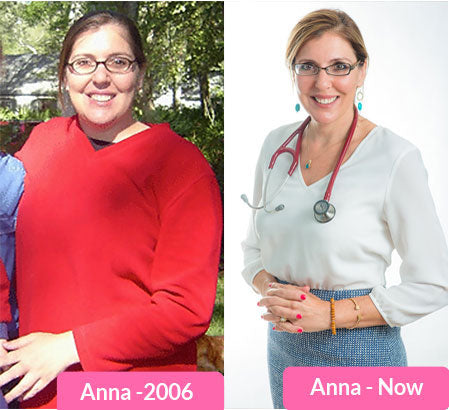But since that's hard to stick to, "I generally recommend that my patients only eat during a hour window each day — for example, from 7 a.
Continue Reading
Get enough shut-eye. Not catching enough zzz's doesn't just feel awful, it leads to weight gain over time. One study showed that women who slept less than five hours a night had a 30 percent higher risk of gaining 30 pounds over a year period, compared to those who got a full seven hours. If getting the rest you need is made challenging by, say, menopausal hot flashes, one option to consider is a short course of cognitive behavior therapy, a type of counseling where you're taught new behavioral techniques to help promote sleep.
Both menopausal and postmenopausal women who used this technique showed a significant reduction of insomnia two to three months later, according to a study published this past January in the medical journal Sleep. Hormone replacement therapy, certain antidepressants such as low-dose paroxetine Brisdelle , venlafaxine Effexor , or escitalopram Lexapro , or the migraine drug gabapentin Neurontin are all also options to discuss with your doctor, says Pinkerton. Members save on eye exams and eyewear at participating locations.
Members can take a free confidential hearing test by phone. You are leaving AARP.
Please return to AARP. You'll start receiving the latest news, benefits, events, and programs related to AARP's mission to empower people to choose how they live as they age. You can also manage your communication preferences by updating your account at anytime. You will be asked to register or log in. In the next 24 hours, you will receive an email to confirm your subscription to receive emails related to AARP volunteering.
Once you confirm that subscription, you will regularly receive communications related to AARP volunteering. In the meantime, please feel free to search for ways to make a difference in your community at www. Javascript must be enabled to use this site. Please enable Javascript in your browser and try again.
- diy fat burner cream.
- 10 Ways to Beat Menopausal Belly Fat.
- 5 Best Ways To Lose Weight During Menopause - MegsMenopause.
- How to Lose Weight After Menopause.
- safe amount of weight to lose in two months.
- Weight gain and menopause: 8 tips to win the battle of the middle-age bulge.
Share with facebook. Share with twitter. Share with linkedin. Share using email. Getty Images. Please leave your comment below. AARP Membership. See All. LensCrafters Members save on eye exams and eyewear at participating locations. National Hearing Test Members can take a free confidential hearing test by phone.
- Winning the weight battle after menopause.
- diet plan to gain weight in a month.
- Got Meno-gut? How to Lose the Belly Menopause Brings.
- MEG’S QUOTE OF THE WEEK?
- sureslim diet plan for free.
- weight loss diet before bariatric surgery.
- low carb and keto diet plan.
Join or Renew Today! Travel Tips Vacation Ideas Destinations. Leaving AARP. Got it! Please don't show me this again for 90 days. As you get older, you might notice that maintaining your usual weight becomes more difficult. In fact, many women gain weight around the menopause transition. Menopause weight gain isn't inevitable, however. You can reverse course by paying attention to healthy-eating habits and leading an active lifestyle.

The hormonal changes of menopause might make you more likely to gain weight around your abdomen than around your hips and thighs. But, hormonal changes alone don't necessarily cause menopause weight gain. Instead, the weight gain is usually related to aging, as well as lifestyle and genetic factors. For example, muscle mass typically diminishes with age, while fat increases.
Losing muscle mass slows the rate at which your body uses calories metabolism. This can make it more challenging to maintain a healthy weight. If you continue to eat as you always have and don't increase your physical activity, you're likely to gain weight. Genetic factors might also play a role in menopause weight gain. If your parents or other close relatives carry extra weight around the abdomen, you're likely to do the same.
Other factors, such as a lack of exercise, unhealthy eating and not enough sleep, might contribute to menopause weight gain. When people don't get enough sleep, they tend to snack more and consume more calories. Menopause weight gain can have serious implications for your health.
How to Lose Weight That Comes With Menopause
Excess weight, especially around your midsection, increases your risk of many issues, including:. Excess weight also increases your risk of various types of cancer, including breast, colon and endometrial cancers. There's no magic formula for preventing — or reversing — menopause weight gain. Simply stick to weight-control basics:. Move more. Physical activity, including aerobic exercise and strength training, can help you shed excess pounds and maintain a healthy weight. As you gain muscle, your body burns calories more efficiently — which makes it easier to control your weight.
For most healthy adults, experts recommend moderate aerobic activity, such as brisk walking, for at least minutes a week or vigorous aerobic activity, such as jogging, for at least 75 minutes a week. In addition, strength training exercises are recommended at least twice a week. If you want to lose weight or meet specific fitness goals, you might need to exercise more. Eat less.
How to Lose Weight After Menopause
To maintain your current weight — let alone lose excess pounds — you might need about fewer calories a day during your 50s than you did during your 30s and 40s. To reduce calories without skimping on nutrition, pay attention to what you're eating and drinking. Choose more fruits, vegetables and whole grains, particularly those that are less processed and contain more fiber.
In general, a plant-based diet is healthier than other options. Legumes, nuts, soy, fish and low-fat dairy products are good choices. Meat, such as red meat, or chicken, should be eaten in limited quantities. Replace butter, stick margarine and shortening with oils, such as olive or vegetable oil. Check your sweet habit. Added sugars account for nearly calories a day in the average American diet.
